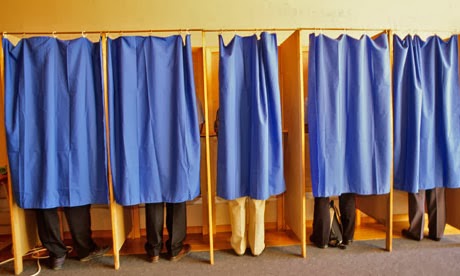The curfew will be in effect from 9pm on January 23 until (at least) 4.30am on February 10. During these hours, members of the public will be expected to stay at home.
The Dutch government hopes that implementing a curfew will (significantly) reduce the number of social gatherings. The Outbreak Management Team said it would be particularly effective in preventing young people from attending / holding parties or meeting one another on the streets. Acting Prime Minister Mark Rutte hopes it will stop people from visiting the homes of family members and friends.
Read more at:
Everything you need to know about the curfew in the Netherlands
with news about and related
to the EU, the Netherlands,
and Almere - Europe's most modern multi-cultural city
Showing posts with label Details. Show all posts
Showing posts with label Details. Show all posts
January 23, 2021
February 12, 2014
THE 2014 EUROPEAN ELECTIONS: THIS TIME IT’S DIFFERENT- MORE DEMOCRACY LESS BUREAUCRACY
 |
| Vote and let your voice be heard |
It will be the eighth Europe-wide election to the European Parliament since the first direct elections in 1979.
The countdown has started: there are 100 days to go until the first polling stations open for the 2014 European elections. In this second biggest democratic exercise in the world, close to 500 million people can cast their vote for a new European Parliament. The 751 MEPs taking up their seats in July will not only set the course of European policies for the next five years but also elect the leader of the EU's executive body, the European Commission President.
For the first time, the composition of the new European Parliament will determine who will lead the next European Commission, the EU's executive body, which initiates legislation and supervises its implementation. Under the new rules, EU government leaders, who will propose a candidate for the post of the future Commission President, must do so on the basis of the election results.
The European Parliament will elect the new Commission President by a majority of the component members, i.e. at least half of the 751 MEPs to be elected (376). European political parties will therefore, or have already, put forward their candidates for this leading position in the EU before the European elections, thus allowing citizens to have a say over next Commission President.
The new political majority emerging from the elections will also shape European legislation over the next five years in areas from the single market to civil liberties.
The Parliament - the only directly elected EU institution - is now a linchpin of the European decision-making system and has an equal say with national governments on virtually all EU laws. Voters will be more influential than ever.
If you are an EU national living in another EU country, you have the right to vote and stand as a candidate for the European Parliament elections in that country. Check for details with your Embassy or Consulate.
Vote and let your voice be heard. The EU Belongs to all of us.
To get a Press kit click here.
EU-Digest
Subscribe to:
Comments (Atom)
